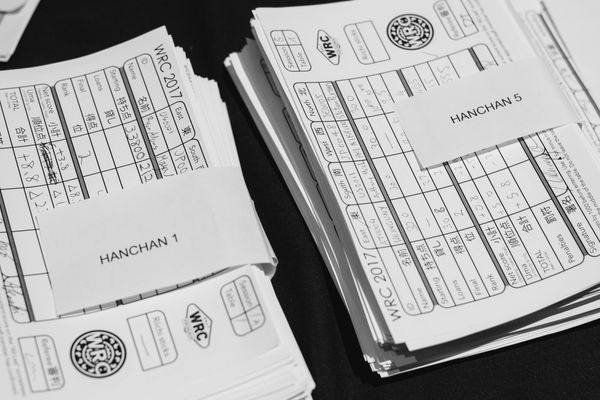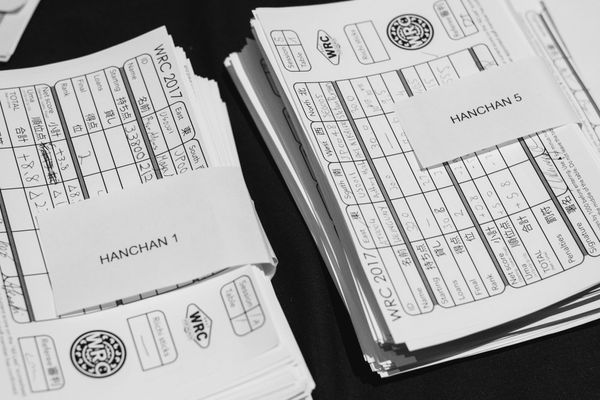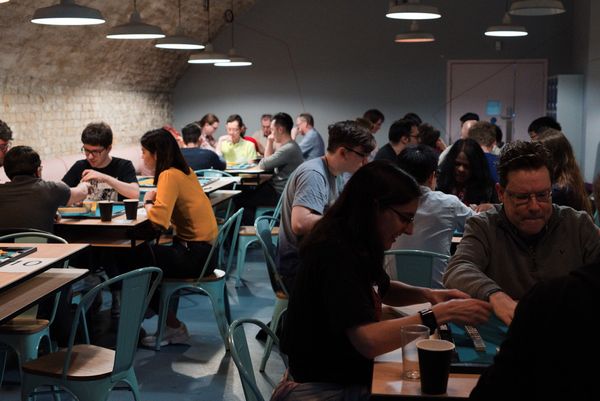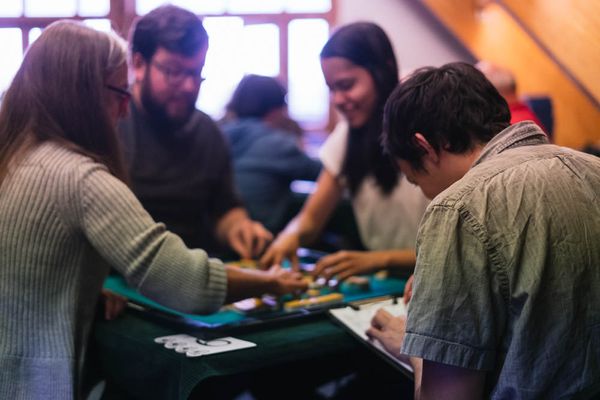Pechorin Style Doctrine
Do you ever feel like Tenhou is designed just to hold you back and that this game sucks, you have bad luck, you must be weak and you will never progress to the next dan (or kyuu) level? Then there is something wrong with your soul. You should read this.
I found this amusing post in Pechorin’s blog some time back, and even puyo posted a portion on his. I have been wanting to translate it for a while. These “commandments” are great for self encouragement and reassurance. Certainly fitting for pechorin (I recommend you follow him on twitter if you can read what he says). Let’s rejoice in wisdom.
Sauce: http://clubforstrangers.txt-nifty.com/pechorin/2010/09/post-1046.html
It’s my third translation today and I’m tired as heck. Pardon my Engrish and such.
Pechorin Style Doctrine*1
[introduction on pechorin explaining that he wanted to write theory but it’s hard]
-Mahjong is not luck. It is skill.
According to your skill, your stats will improve accordingly.
If you play long enough, your skill will begin to be reflected.
Skillful people will win, unskillful people will lose,
mahjong is that kind of game.
If you think mahjong is about luck, your growth/improvement will stop.
–Constantly aim for the next dan level.
Playing without a direction you won’t become strong.
By constantly aiming to reach the next dan level,
you will be able to see the gap and the obstacle will become obvious.
If you lose the motivation of “leveling up” you won’t improve.
[I’m taking a little liberty in the next one. 確変 is not that common of a term in the English speaking community]
–Don’t use expressions like “I’m in a bad run.”
With words like “bad streak,”
you are losing your independence.
You can say “I’m in a bad streak” only as a joke.
Just select the best discard one time after another.
Good results will prevail after that.
-Have pride as a player.
The moment you think about yourself as “weak,” you lost.****
Even if right now you’re not doing well,****
just think “one day I’ll be able to become phoenix rank! (or 9th-10th dan).”
-Have a player to be your target or your “rival.”
That becomes a big motivation.
Especially, the best would be
a rival that you think “I don’t wanna lose against this guy!”
-In any case, play frequently.
If you don’t play frequently, you don’t know if you are improving.
Even if you decide to use a PDCA Cycle or a hypothetical thinking,
if you don’t play then you won’t get it going.
If you have time, you should play.
-Don’t be afraid to go down in rank.
It is normal to hit a wall in your results,
no matter how skilled someone can be they may go down in rank.
Even if you temporarily go down, if you have skill you will certainly get back.
There is no need to fear going down several ranks.
-You should actively participate in research assemblings.
In these study sessions, you can encounter people,
and you will be able to clearly see your convictions.
First, what is your policy on point situations and round situation,
and also discard by discard explaining what your theory is.
That becomes a great experience and practice.
When you appear, you should explain your intention clearly.
If you don’t state your opinion when you appear, then you are just wasting everyone’s time.
[Well, too bad only Japan has these regular sessions of mahjong players coming out and commenting discards and strategy in a group-friendly environment]
-Don’t espectate games.
To express it better, don’t just focus on watching a lot of games.
If you have to do it, then think ing”I would play like this…”
is what you should do.
Rather than watching 100 games,
I recommend just attending one study session (research assembling/etc).
-Leave aside the notion of “aim for first place.”
In Tenhou, first place is no big deal.
Not being last is a great deal.
However, even though “last place avoidance” is well known and said,
there are a surprising number of players who ignore it.
In order to be conscious about last place avoidance,
you must repeat it to yourself.
As long as you think “I don’t like Tenhou because it’s about last place avoidance”
then you will never become top-class.
*-Do not cry about things like “I instantly dealt in… (i.e. ippatsu)”2
These are not rare things.
The opposite pattern happens many times.
So long as you didn’t declare riichi, you are completely able to fold.
Rather than the other person getting his ippatsu tsumo, this is better.
You have the option to fold right there.
If you discard it right there, then you just pay for your mistake.
If you got caught because you had declared riichi,
then think if your opponent’s riichi was pertinent.
Contemplate if there was no need to declare riichi,
and if it was indeed a riichi that had to be declared,
then it’s okay to think it was an unavoidable deal-in.
-When you get to tenpai and you deal into someone else, don’t cry things like “I lost to him” or “I’m out of luck…”
If you look at the replay/log, you will understand but
there are many cases where the winning tile was at the end
or where there were only 2 tiles remaining.
Furthermore, in phoenix room (鳳凰),
there are many cases where multiple players are waiting on the same tiles.
It is the winning chances that are slim.
Realize that it was lucky that you had been winning up until now.
—
Two more weekly posts are programmed, so look forward to that. I’ll be going in a little, uh, vacation starting next week. So, see you guys soon, I guess. The posts will still be auto-posted.
I find it really important to point the things in these post out, as some people actually want to improve but lack the right mindset.
Ah, before I forget, notes:
-
This is a tough translation. It is a composit word of 精神 (heart, soul, intention) and 論 (argument, theory). My best shot at translating it in one word, is “doctrine” as it is the guidelines for your soul.
-
I don’t think pechorin meant just “dealing into an ippatsu” but the fact of “being caught instantaneously.” This is, sometimes you draw the worst possible tile (dora) right after someone reaches. You didn’t deal into the ippatsu, per se, but you did get caught in one shot. I’m sure it happens. Still, the text applies for both situations.



